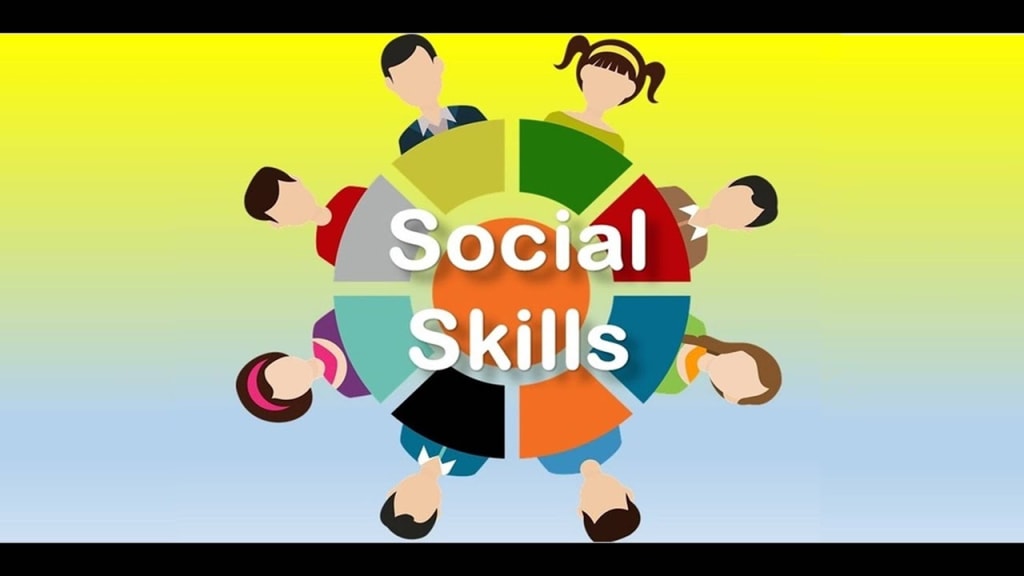
What Are Social Skills?
Social Skill is also known as interpersonal skills or people skills, social skills are “tools we use to communicate, build relationships, and interact with others.” International Schools in Bangalore We use them every day without even thinking about them.
For some people, social skills come naturally. They’re a challenge for others. The good thing is that you can learn and develop them. Here’s another definition of social skills that I like: “social skills are the ways people control their words and actions to get along better with others.”
Benefits of Developing Social Skills in Children
Children develop their social skills in different environments. They start at home and then usually continue their development at International Schools in Bangalore or even with a therapist.
Here are some of the benefits of teaching positive social skills to your child:
1. They’re able to make friends
2. They can adapt to different situations and cultures
3. They’re better communicators
4. Better listeners
5. They’re able to build better relationships
6. Increased happiness
7. Better career prospects
8. Reduced stress
12 Social Skills to teach children
1. Listening Skills:
In International Schools in Bangalore One of the essential social skills for kids is learning how to listen. Listening involves paying attention to what the other person is saying and responding accordingly. It’s important to encourage your child to listen carefully and not interrupt when others are talking.
Listening not for replying but listening for understanding someone else’s point of view, argument or discussion. Understanding does not equate to being convinced or influenced in any way.
2. Sharing Skills:
Chat messages on groups aren’t sharing. Sharing isn’t about information or engaging in charity. Sharing is that fraternal feeling for any another human being which propels us to extend help in times of need without any expectations in International Schools in Bangalore.
3. Cooperating Skills:
Cooperation involves working together with others towards a common goal. In International Schools in Bangalore the Kids must learn how to compromise and resolve conflicts peacefully. They also need to know how to be flexible and accept that there may be different ways of doing things.
Well, wouldn’t sharing and cooperating mean the same? Not really. Cooperation means being an enabler. Your support towards anything that may not be largely beneficial personally but contribute towards the welfare of others would be a cooperative and “very cool” thing to do.
4. Respecting Skills:
In International Schools in Bangalore the respecting skills It seems that in the process of being friendly, we have some where lost the ‘Art’ of respecting. Friendly is a persona, respect is an attitude. An agreement or a disagreement should not let you cross the boundaries of respecting an idea, ideology or behaviour. Respecting does not mean you agree to what is being stated, it just means that you have heard someone without reacting to it.
5. Sieving Skills:
The present world situation cannot more appropriately put into perspective the importance of this skill. The progress in telecommunication makes it possible to have information, literally and theoretically, on your fingertips! But authentication is the need of the hour. It saves spreading of panic and ensures we remain calm in turbulent times.
6. Being Responsible Skills:
It’s important that we take responsibility in International Schools in Bangalore of our ‘ayes’ but we are equally responsible when we do not firmly express a timely ‘nay’. It establishes your assertiveness about not only your beliefs but also defines the limits which you would not exceed nor let others do the same too.
7. Being Kind Skills:
The new IQ (intelligent quotient) is EQ (emotional quotient)! In a diversified world where getting information is so easy but processing it depends on the individual and the surroundings that they are exposed to.“Being in their shoes” would be essential to make informed decisions. Being kind does not mean pampering or mollycoddling. It means a timely intervention which would save someone from unnecessary heartache or difficulty though it may not get you any benefits.
This almost confirms the doubt that I always pondered upon: Why has Shakespearean literature been relevant through four centuries and the answer which stares back is; it deals with human emotions! I can see frown lines on your forehead questioning the connection between the two. Clearly our emotions drive then skills we imbibe for the trait we want to exhibit (either positive or negative). These traits are universally accepted or rejected in any social structure or culture. This defines our confidence and self-esteem and how we view ourselves.
8. Communication skills:
In International Schools in Bangalore the Effective communication is another essential social skill for kids. This involves being able to express oneself clearly, and also being a good listener. Kids need to learn how to take turns when speaking and appropriately express emotions. It’s also essential that they know how to ask questions to clarify information.
9. Empathy skills:
Empathy is the ability to understand and share the feelings of another person. It’s an essential social skill for kids, as it helps them build relationships with others. Empathetic kids in International Schools in Bangalore can see things from another person’s perspective and are likelier to be kind and considerate towards others.
10. Friendship skills:
Friendship skills involve being able to make and keep friends. Kids need to learn how to be friendly and show interest in others. They also need to know how to handle disagreements and resolve conflicts.
11. Conversation skills:
Conversation skills involve being able to hold a conversation with another person. Kids need to learn how to take turns talking and listen attentively to what the other person is saying. They also need to know how to ask questions and make comments that contribute to the conversation.
12. Assertiveness skills:
Assertiveness skills involve being able to express one’s own needs and opinions respectfully. Kids in International Schools in Bangalore need to learn how to stand up for themselves and speak up when they have something important to say. They also need to know how to respect the rights of others, even when they disagree with them.
Conclusion
Harvest International School Children are unique. In the same way, they have unique ways of learning social skills. In International Schools in Bangalore the Teachers should strive to distinguish the differing needs of their learners. A varied approach may be required to reach some of them. But what they all need from a teacher is reassurance that the classroom is a safe space where they are loved and valued.
If a child feels they can trust a teacher, they will confide in them if there is something wrong at home. They need to learn that respect is a two-way street. They show respect to their teacher and peers, and then they will receive respect in return. Teachers should learn their names and their distinct personality traits as soon as possible so that they know how to reach their learners.





Comments
There are no comments for this story
Be the first to respond and start the conversation.